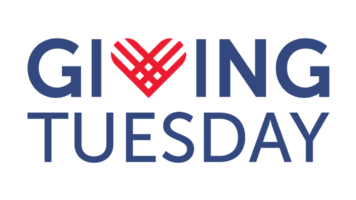Monthly Newsletter
Highlighting Scientific Advancements and Advocacy During Breast Cancer Awareness Month
October 2022

As we reflect on Breast Cancer Awareness Month, we find an opportunity to unite as a community to honor breast cancer survivors and raise awareness about progress researchers and clinicians have made in advancing science. This important observance reminds us of the strides that have been made to transform a terrifying diagnosis into an actionable treatment plan that maximizes a person’s prognosis for recovery and remission.
Breast cancer is the most common cancer among women here in the U.S. and across the globe and the leading cause of cancer death in women around the world. Tragically, in the U.S., breast cancer mortality is about 40 percent higher in Black women than in white women.
Biopharmaceutical companies are at the forefront of breast cancer treatments and pioneering promising new therapies to save and extend lives with the ultimate goal of discovering cures. As of 2021, there were 4 treatments to prevent breast cancer and over 80 medicines to treat the disease.
New biopharmaceutical approaches have isolated irregularities in cancer cells specific to a particular patient. Targeted therapies can take aim at cellular and genetic alterations that trigger cancer cells to grow or spread. In addition, breast cancer vaccines are on the horizon with clinical trials currently underway.
Organizations like Susan G. Komen, Breast Cancer Research Foundation, National Breast Cancer Foundation and the American Cancer Society are doing their part to reduce breast cancer rates, providing research funding, information and support to women with breast cancer. Carrie’s Touch, located here in California, is devoted to saving more lives of Black women diagnosed with breast cancer and to ensure that they have an equal opportunity to live well after diagnosis. Part of the organization’s mission is to bring awareness to the health inequality that that adversely impacts the African American community with regard to breast cancer. Watch this video to learn more.
National Health Advocates Work to Protect Patients Against Rx Copay Accumulator Programs
The All Copays Count Coalition, including patient advocates from some of the nation’s leading health advocacy organizations, have teamed up to put an end to copay accumulator programs which is an insurance practice that disallows copay assistance from pharmaceutical companies to count toward a patient’s annual deductible or out-of-pocket responsibilities. Instead, the patient assistance is attributed to the insurers reserves rather than assisting a patient with their prescription costs.
People living with serious, chronic health conditions often face multiple barriers to the therapies they need to treat their conditions, such as administrative hurdles like prior authorization and step therapy that limit access to specialty medications. And once approved, patients face high-cost deductibles and steep cost-sharing. With no other options to afford the medicine they need, many patients turn to charitable or manufacturer copay assistance to afford their drugs.
Copay accumulator adjustment programs cut a critical lifeline for patients and as a result, many are faced with unexpected costs of thousands of dollars to get the medicines they need. These programs disproportionately impact the most vulnerable patients who rely on certain medicines. A recent survey found that 69% of those who depend on such assistance make less than $40,000 a year, leaving them at risk of losing access to necessary health care.
In addition, a loophole under the Affordable Care Act allows many employer health plans to deem certain categories of prescription drugs as “non-essential,” even when they are life-saving or necessary for people with serious pre-existing and chronic conditions. When a covered drug is deemed “non-essential,” the insurer will not count any cost-sharing toward the patient’s deductible and out-of-pocket maximum. This loophole also allows employers to simply not cover drugs that treat expensive health conditions. By falling into the EHB loophole, patients in these plans often must pay hundreds or thousands of dollars in out-of-pocket costs for life-saving medicines and never hit their out-of-pocket maximum.
Together, these practices undermine coverage for preexisting conditions, hurt patient access to medicines, decrease drug adherence, and likely cost our healthcare system even more money.
For more information about the All Copays Count California Coalition or copay accumulator programs contact Lynne Kinst at [email protected]
Stay informed on the latest news and trends on the economic and health benefits of this industry by visiting CABiotech.org
For more information about California’s biotechnology and life science industry, contact California Biotechnology Foundation Executive Director Patty Cooper at (916) 764-2434 or [email protected].
For more information, contact Patty Cooper with the California Biotechnology Foundation at 916-764-2434 or [email protected].


